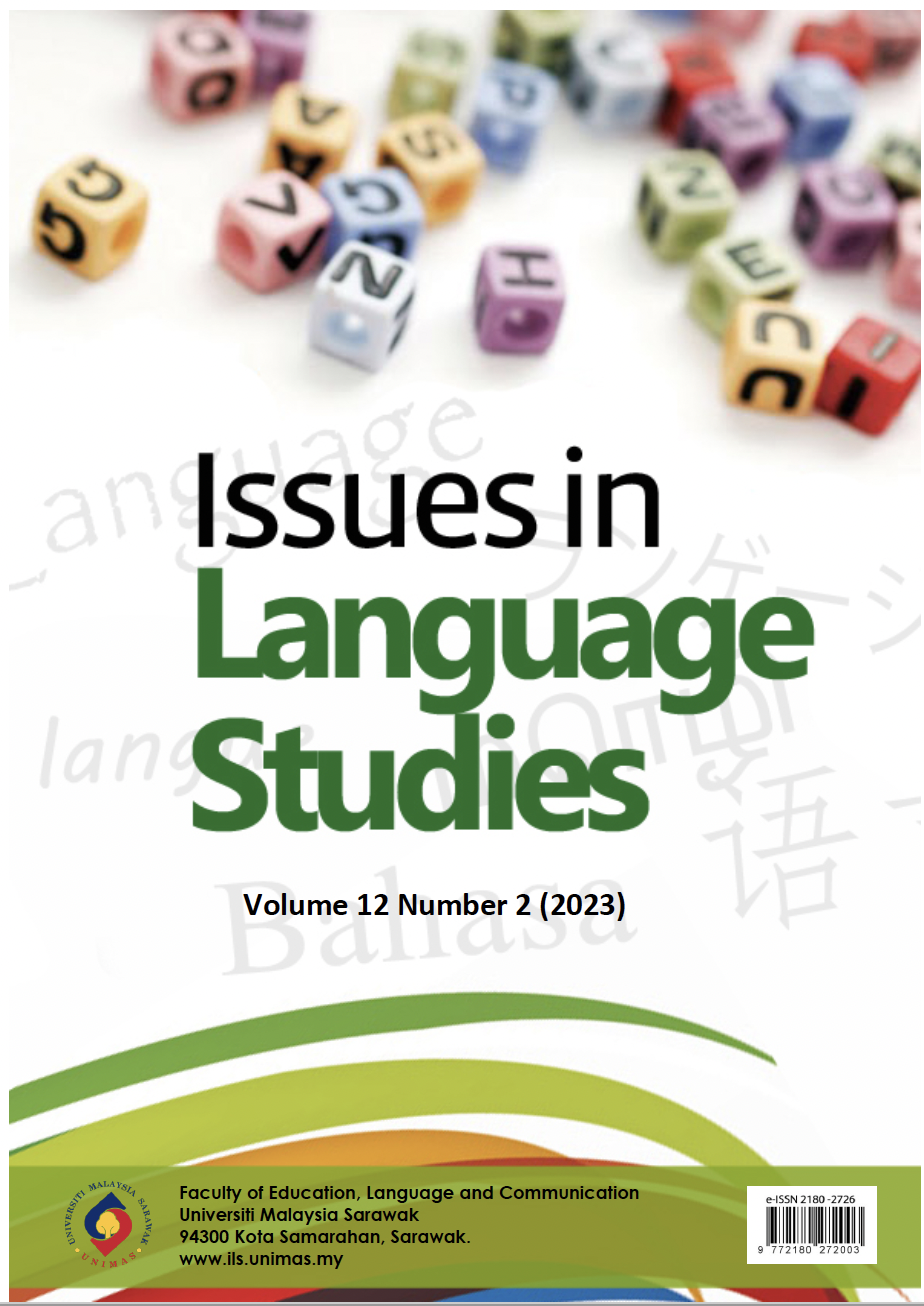Abstract
Chemmeen (1956), a Malayalam novel by Thakazhi, narrates a love story set in a fishing village. Its first English translation was done by Menon in 1962. This translation became the source text for a French translation in 1965. The French translation, being an indirect translation from Malayalam through English, mirrors largely the English version. This study focusses on studying how the various terms of address employed in the original Malayalam text have been translated into English and if they have influenced the French version. Newmark’s (1988) typology of translation procedures is employed to identify the procedures adopted in translating the terms of address into the mediating translation. Koller’s type of equivalences is applied to study what sort of equivalence has been achieved and the extent the mediating translation has influenced the French translation. The findings show that the English translation has, for the most part, communicated the address forms by providing descriptive and functional equivalents that do little to capture the original essence of the terms, resulting in their cultural significance not adequately portrayed. The French version, based on the English translation, has been clearly influenced by the mediating translation and hence does not convey the fishermen’s socio-cultural dimension effectively.
References
Allwood, A. (2021). (Semi)peripheries in contact: Indirect translation of novels into
Swedish 2000–2015. STRIDON: Studies in Translation and Interpreting. 1(1), 57-
https://doi.org/10.4312/stridon.1.1.57-77
Balbir, N. (1965). Chemmeen Un amour indien. India: Kailash Editions.
Braun, F. (1988). Terms of address: Problems of patterns and usage in various languages
and cultures. Mouton de Gruyter.
Brown, R., & Gilman, A. (1960). The pronouns of power and solidarity. In T. A. Sebeok
(Ed.), Style in language (pp. 253-276). MIT press.
Dinckan, Y. (2019). A linguistic analysis of the literary translation of address forms from
English into Turkish. Journal of Translation Studies, 1(27), 89-110.
Ethelb, H. (2015). Using address terms in showing politeness with reference to their
translation from Arabic into English. International Journal of Comparative
Literature & Translation Studies, 3(3), 27-37.
https://journals.aiac.org.au/index.php/IJCLTS/article/view/1690
Haroon, H. (2022). Indirect translation and the influence of the mediating text: The case
of Le Petit Prince in Malay. 3L: Language, Linguistics, Literature, The Southeast
Asian Journal of English Language Studies, 28(1), 167-180.
http://doi.org/10.17576/3L-2022-2801-12 167
Koller, W. (1979). Introduction into the science of translation. Quelle and Eyer.
Mansor, N. S. (2018). Understanding the translation of second person address form in the
specific context. International Journal of Foreign Languages, 8, 65-89.
Menon, N. (1962). Chemmeem. Jaico Publishing House.
Newmark, P. (1988). A textbook of translation. Prentice Hall International (UK) Ltd.
Pym, A. (2014). Exploring translation theories. Routledge, New York.
Rosa, A. A., Pieta, H., & Maia, R. B. (2017). Theoretical, methodological and terminological
issues regarding indirect translation: An overview. Translation Studies, 10(2),
-132, doi: 10.1080/14781700.2017.1285247
Thomas, A. J. (2002). Modern Malayalam fiction and English: An inquiry into the cultural
and linguistic problems of translation [Doctoral thesis, Mahatama Gandhi
University]. http://hdl.handle.net/10603/341
Washbourne, K. (2013). Nonlinear narratives: Paths of indirect and relay translation.
Meta, 58(3), 607-625. doi:10.7202/1025054ar
Copyright Transfer Statement for Journal
1) In signing this statement, the author(s) grant UNIMAS Publisher an exclusive license to publish their original research papers. The author(s) also grant UNIMAS Publisher permission to reproduce, recreate, translate, extract or summarize, and to distribute and display in any forms, formats, and media. The author(s) can reuse their papers in their future printed work without first requiring permission from UNIMAS Publisher, provided that the author(s) acknowledge and reference publication in the Journal.
2) For open access articles, the author(s) agree that their articles published under UNIMAS Publisher are distributed under the terms of the CC-BY-NC-SA (Creative Commons Attribution-Non Commercial-Share Alike 4.0 International License) which permits unrestricted use, distribution, and reproduction in any medium, for non-commercial purposes, provided the original work of the author(s) is properly cited.
3) For subscription articles, the author(s) agree that UNIMAS Publisher holds copyright, or an exclusive license to publish. Readers or users may view, download, print, and copy the content, for academic purposes, subject to the following conditions of use: (a) any reuse of materials is subject to permission from UNIMAS Publisher; (b) archived materials may only be used for academic research; (c) archived materials may not be used for commercial purposes, which include but not limited to monetary compensation by means of sale, resale, license, transfer of copyright, loan, etc.; and (d) archived materials may not be re-published in any part, either in print or online.
4) The author(s) is/are responsible to ensure his or her or their submitted work is original and does not infringe any existing copyright, trademark, patent, statutory right, or propriety right of others. Corresponding author(s) has (have) obtained permission from all co-authors prior to submission to the journal. Upon submission of the manuscript, the author(s) agree that no similar work has been or will be submitted or published elsewhere in any language. If submitted manuscript includes materials from others, the authors have obtained the permission from the copyright owners.
5) In signing this statement, the author(s) declare(s) that the researches in which they have conducted are in compliance with the current laws of the respective country and UNIMAS Journal Publication Ethics Policy. Any experimentation or research involving human or the use of animal samples must obtain approval from Human or Animal Ethics Committee in their respective institutions. The author(s) agree and understand that UNIMAS Publisher is not responsible for any compensational claims or failure caused by the author(s) in fulfilling the above-mentioned requirements. The author(s) must accept the responsibility for releasing their materials upon request by Chief Editor or UNIMAS Publisher.
6) The author(s) should have participated sufficiently in the work and ensured the appropriateness of the content of the article. The author(s) should also agree that he or she has no commercial attachments (e.g. patent or license arrangement, equity interest, consultancies, etc.) that might pose any conflict of interest with the submitted manuscript. The author(s) also agree to make any relevant materials and data available upon request by the editor or UNIMAS Publisher.

